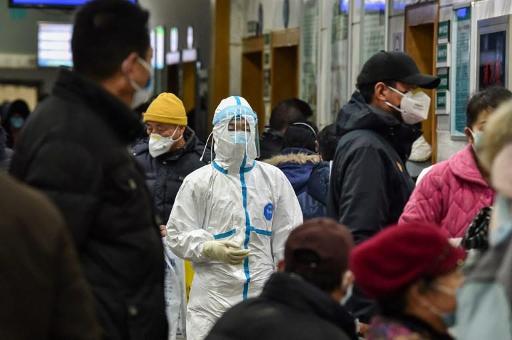Despite the World Health Organisation (WHO) declaring the Chinese-originated Coronavirus outbreak as a global health emergency, not a lot will change in Belgium.
In general, the Public Health Emergency of International Concern (PHEIC) declaration means that countries will be asked to report more on the disease. The PHEIC declaration should also accelerate the development of a vaccine, and make it possible for data and know-how to be shared better and faster. It also makes it easier for policymakers to restrict travel and trade, even though that is not necessary at this moment, according to the WHO.
The organisation also imposed several International Health Regulations on all countries. However, as Belgium already complies with them, the PHEIC will not change a lot for the country. "We expect there to be a case, sooner or later, but we are also convinced that we are ready to deal with it," Jan Eyckmans, a spokesperson for the FPS Public Health, told The Brussels Times.
The WHO demands that countries are able to quickly identify the Coronavirus, fully isolate and treat the affected people, to stop the further spread of the virus. "We have tested about 16 people now, and all the results were negative. Additionally, our immediate response to the false alarm at the airport a few days ago also proves that we definitely comply with that demand," said Eyckmans.
Secondly, countries need to have sufficient laboratory capacity to quickly diagnose people. "We have the laboratory of the KU Leuven, which has the most advanced and fastest tests, and where we can run tests day and night," he added.
Related News
- Coronavirus update: Italy declares state of emergency
- WHO: Coronavirus declared global health emergency
- Coronavirus update: first two cases confirmed in UK
- Coronavirus Update: what's the latest in Belgium?
- Coronavirus alarm at Zaventem airport: False alarm
- Coronavirus: pilots file complaint against American Airlines
A third demand is sufficient hospital and treatment capacity. "At the moment, we have two reference hospitals, the St Pierre hospital in Brussels, and the UZ in Antwerp, which are both ready to receive and treat patients, should they start turning up in Belgium," Eyckmans added.
"If the first case turns up, the risk analysis may change, and the experts may then propose measures to be implemented, of course," Eyckmans stated.
At the airport, no additional measures will be taken either. "We are in close contact with the FPS Public Health, but at this moment, no additional measures for the airports are necessary," a Brussels Airport spokesperson told The Brussels Times.
"With the measures that are being taken by several airlines, travel organisations and, of course, China, fewer passengers from areas that form a risk are arriving in Belgium," said Eyckmans. "Additional measures are not necessary, but we are very much alert," he added.
However, a Belgian inter-ministerial risk management group has decided to activate a coronavirus information website on Friday, as well as a bilingual call centre on Monday, after the group met to check that the existing Coronavirus procedure was up to date, according to Barbara Trachte, Minister-President of the French Community Commission in Brussels
Maïthé Chini
The Brussels Times

